A cross-section of competencies at the FarU Quality Day
Researchers, teachers, and, above all, passionate professionals gathered for the annual conference dedicated to the quality of education. This year’s edition of the “FarU Quality Day” conference focused on transversal competencies and how they can be integrated into everyday teaching practices. The program also included the employers' perspective, presented by practitioners from the business and economic circles.
The meeting was opened by Ewa Szymczak. Ph.D., Associate Professor at the UG and Vice-Rector for Education, who welcomed participants to the university hosting the third edition of the conference. She introduced guests to the main thematic focus of the event and welcomed the representatives of the university authorities – Prof. Agnieszka Zimmermann, Vice-Rector for Education, and Prof. Aleksandra Gaworska-Krzemińska, Vice-Rector for Students’ Affairs of the Medical University of Gdańsk, Barbara Wikieł, Ph.D, Associate Professor at the GUT, Vice-Rector for Students’ Affairs, Prof. Justyna Kucińska-Lipka, Associate Professor at the GUT, Vice-Rector for Development, Prof. Mariusz Kaczmarek, Associate Professor at the GUT and its Vice-Rector for Education, Prof. Urszula Patocka-Sigłowy, Associate Professor, UG's Vice-Rector for Students’ Affairs, and Prof. Arnold Kłonczyński, Associate Professor of the UG, Director of the UG Library, where the conference was held.
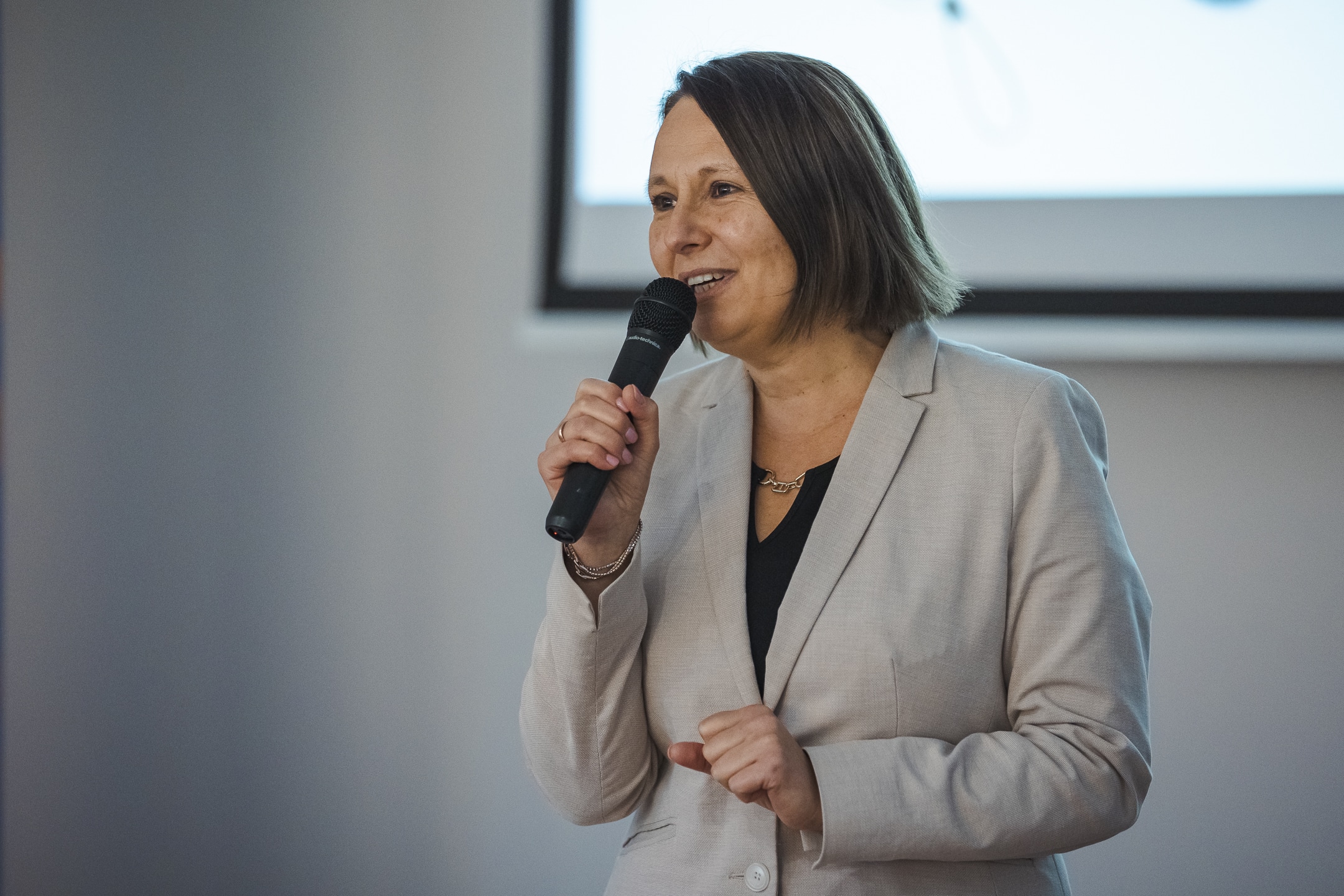
Prof. Adriana Zaleska-Medynska, Director of the Fahrenheit Universities in Gdańsk, also took the floor. She emphasised the important role such events play in fostering synergy – one of the key foundations upon which the Fahrenheit Universities was established.
Quality, not just a buzzword
The first panel was opened by Prof. Agnieszka Zimmermann, who argued for the urgent need to equip students– the future graduates and employees – with transversal skills.
Jarosław Jendza, Ph.D., of the University of Gdańsk’s Center for Didactic Improvement and Excellence and Tutoring expanded on this challenge, discussing the university's mission and its evolving approach to education. He emphasised that within each of the university’s core missions, be it education, social engagement, or talent development, there lies a distinct set of skills and key competencies that hold strategic importance from the academic perspective. However, the broader question remains: should higher education maintain a traditional or highly specialized model, or should it evolve toward one that is more adaptable to labour market demands? Jarosław Jendza, Ph.D., emphasised, however, that regardless of the risks associated with any particular educational approach, the growing importance lies in fostering a vision of a harmonious and diverse society –one in which individuals recognize themselves as part of a larger whole that they can actively shape. This is particularly vital in an era marked by the rapid expansion of knowledge.
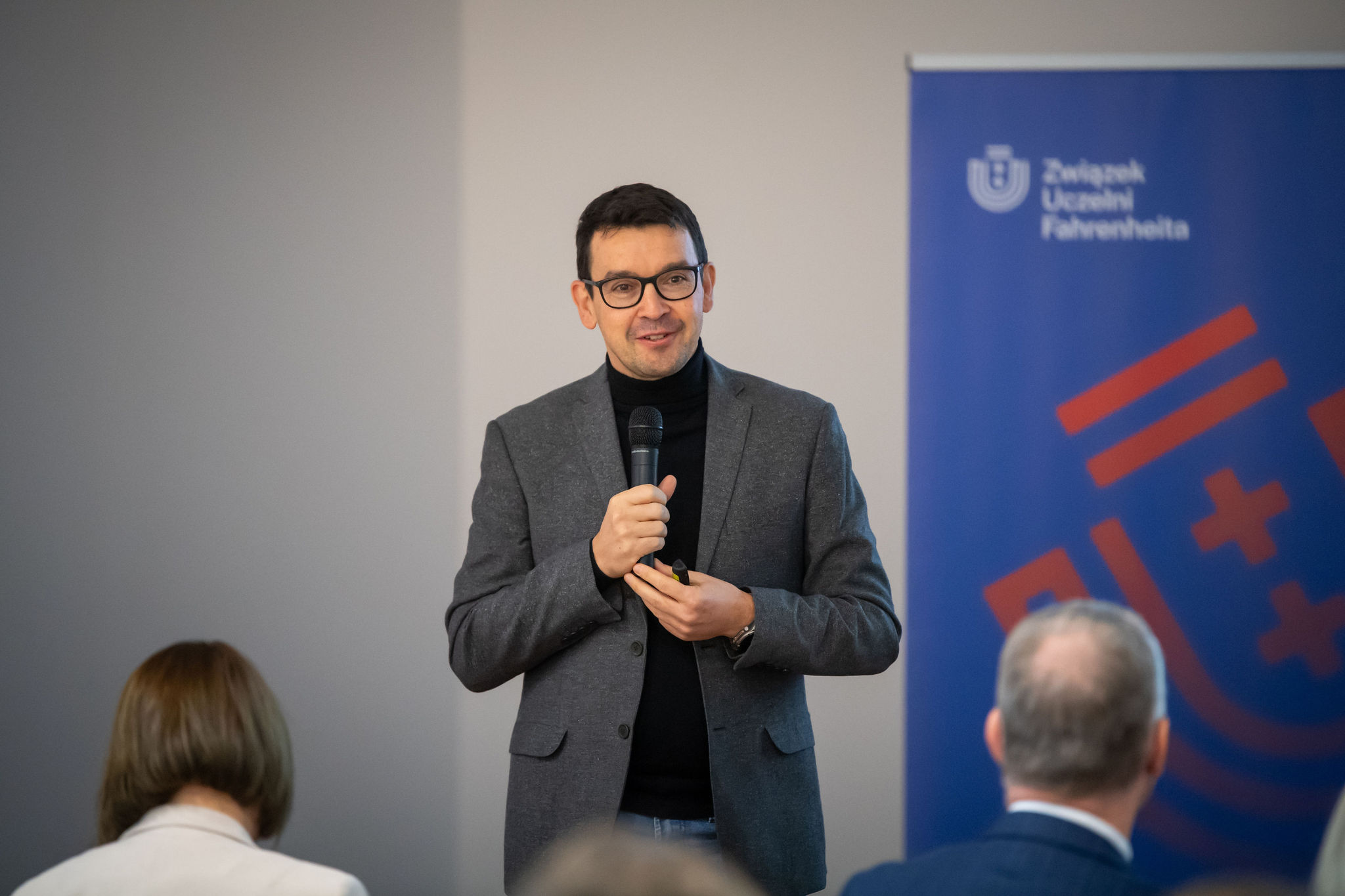
The impact of global changes such as the pandemic as well as generational shifts and their evolving needs, was addressed by Joanna Mytnik, Ph.D., Associate Professor at the GUT, the Centre for Modern Education (GUT). She highlighted the rise of incidental, haptic and network-based learning, now dominant in educational contexts. She also pointed to the evolution of socio-emotional competencies, especially those emerging among newer generations. Today’s job market, she noted, is no longer governed by education alone, but increasingly by practical skills and competencies. The speaker encouraged the adoption of metareflective learning methods, self-assessment (supported by tools and clearly defined criteria), and the practice of feedback that includes appreciation, not just critique, as well as techniques for analysis and problem-solving. She concluded with a brief overview of the competency mapping process, emphasising that one of its most crucial elements is the learner’s readiness and responsibility for their own learning journey.
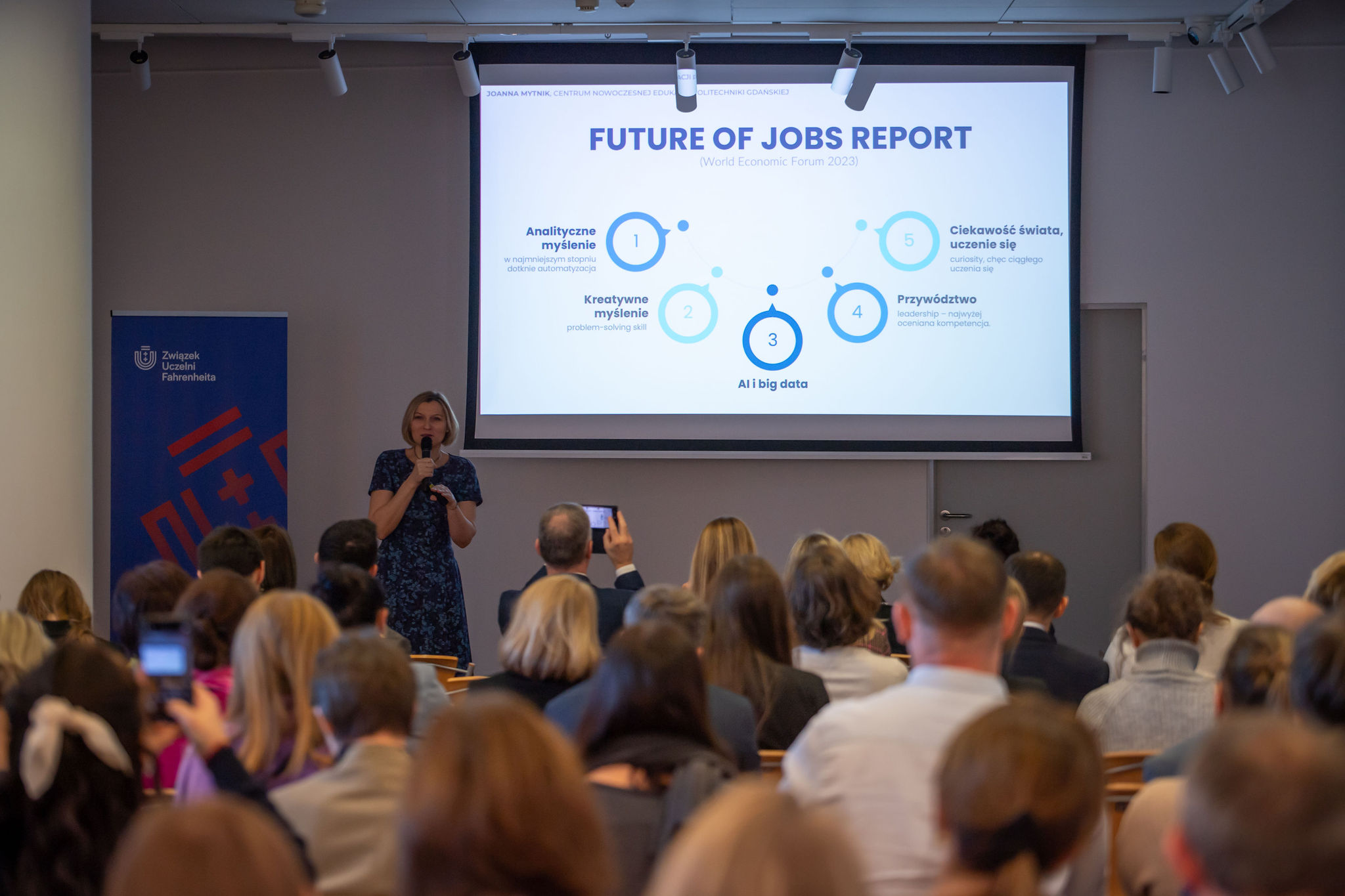
Prof. Krzysztof Sobczak of the MUG’s Department of Sociology of Medicine and Medical Communication began his speech by attempting to simplify the broad concept of transversal competencies. He described them as a set of skills, knowledge, and attitudes that enable individuals to adapt to emerging problems and challenges. He emphasized that in the biomedical sciences, empathy stands out as a flagship competency. Its development, he argued, should begin with self-reflection, followed by interpersonal communication, and ultimately extend into social exposure. In discussing the universal foundations of transversal competencies, he highlighted two key areas: the personal domain (the exploration of others’ perspectives and self-awareness) and a redefinition of the expert role, where personal competence appears to be at the very core. In the area of best practices, Krzysztof Sobczak, Ph.D., devoted particular attention to simulation, highlighting it as a safe and effective space for testing and developing transversal competencies within the educational process (particularly through the enforced decentration).
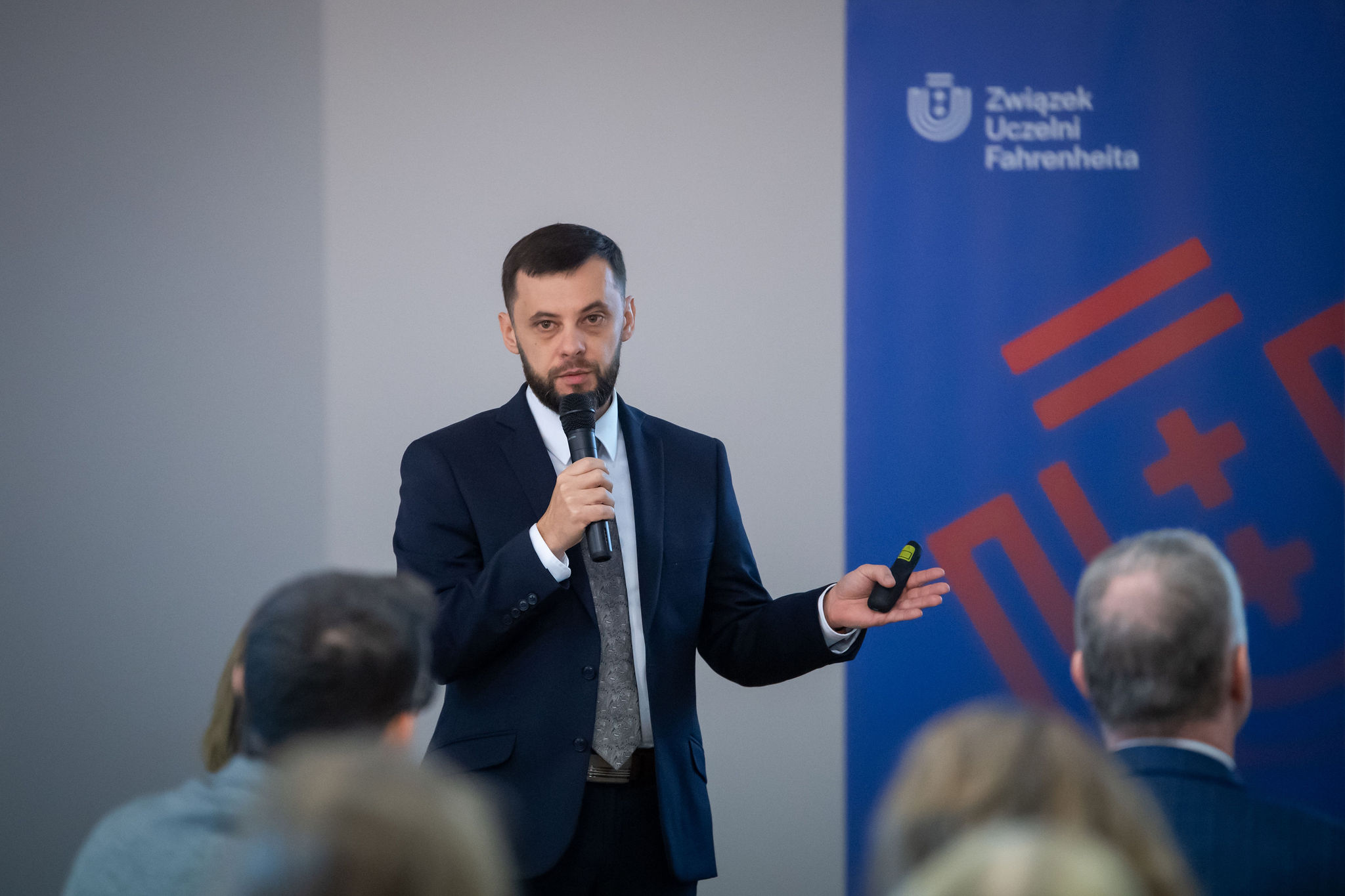
The student perspective was brought into the discussion by Kamil Szefler, Eng., a student at the Gdańsk University of Technology. He emphasised the institutional support available to students and shared his own developmental path, both within and beyond the academic environment, as he currently works full-time, participates in a grant-funded project, and pursues his studies through an individualised study programme.
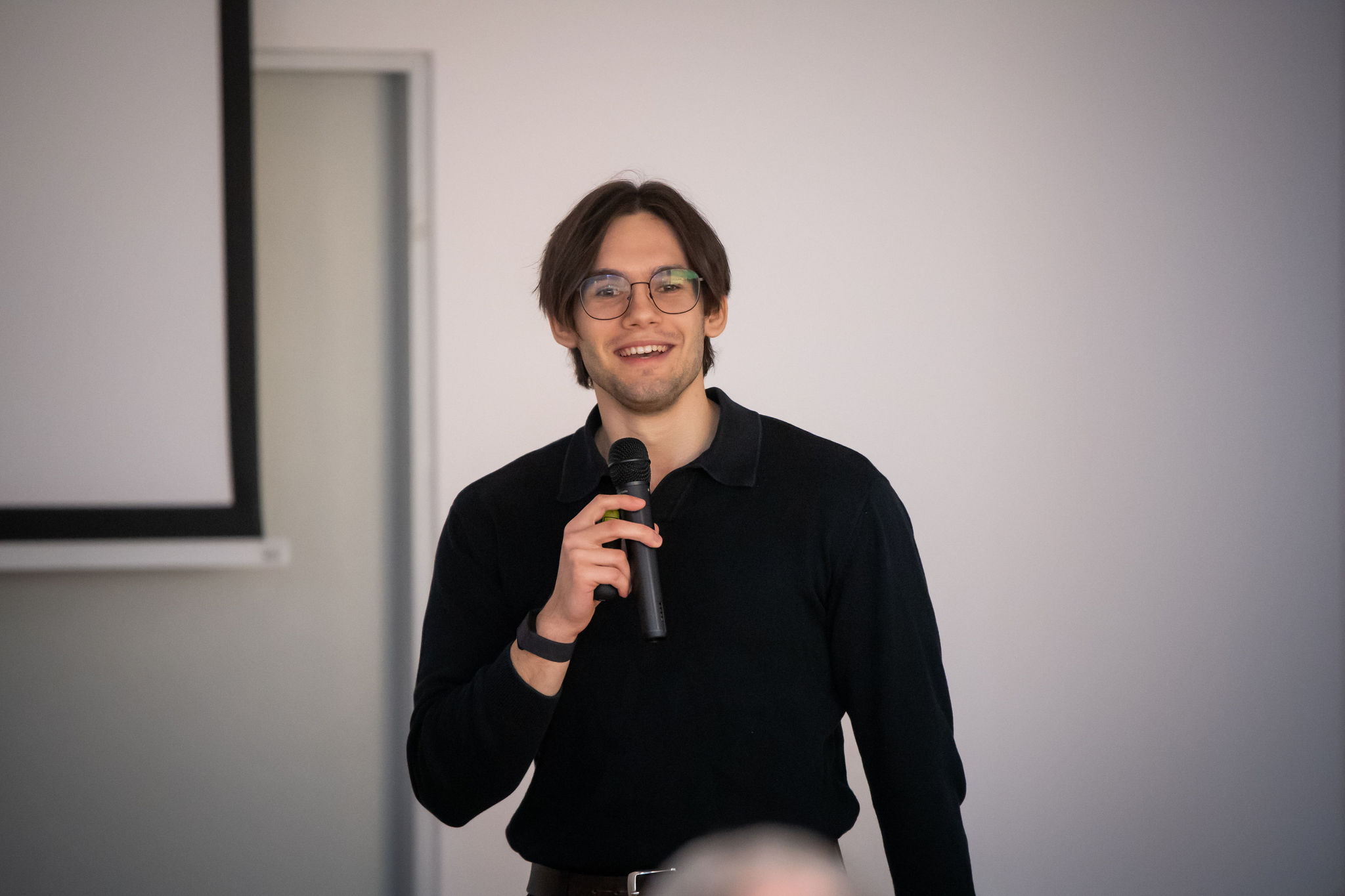
Developing student competencies
The next part of the event was led by Barbara Wikieł, Ph.D., Associate Professor at the GUT. The opening lecture of this session focused on the role of student science clubs. Anna Szablewska, Ph.D., from the MUG's Department of Midwifery and Gynecological Nursing highlighted the benefits and strengths of engaging students through participation in science clubs. She emphasised the self-reinforcing nature of this model of collaboration and knowledge transfer. As the supervisor of one such clubs, the Future Midwives, she witnesses this dynamics daily. She spoke about applying a tutoring-based approach in leading the science club, as well as incorporating team-based learning methods, which not only support the group’s growth but also evolve owing to its activities (the science club’s activity may contribute to the development of the method).
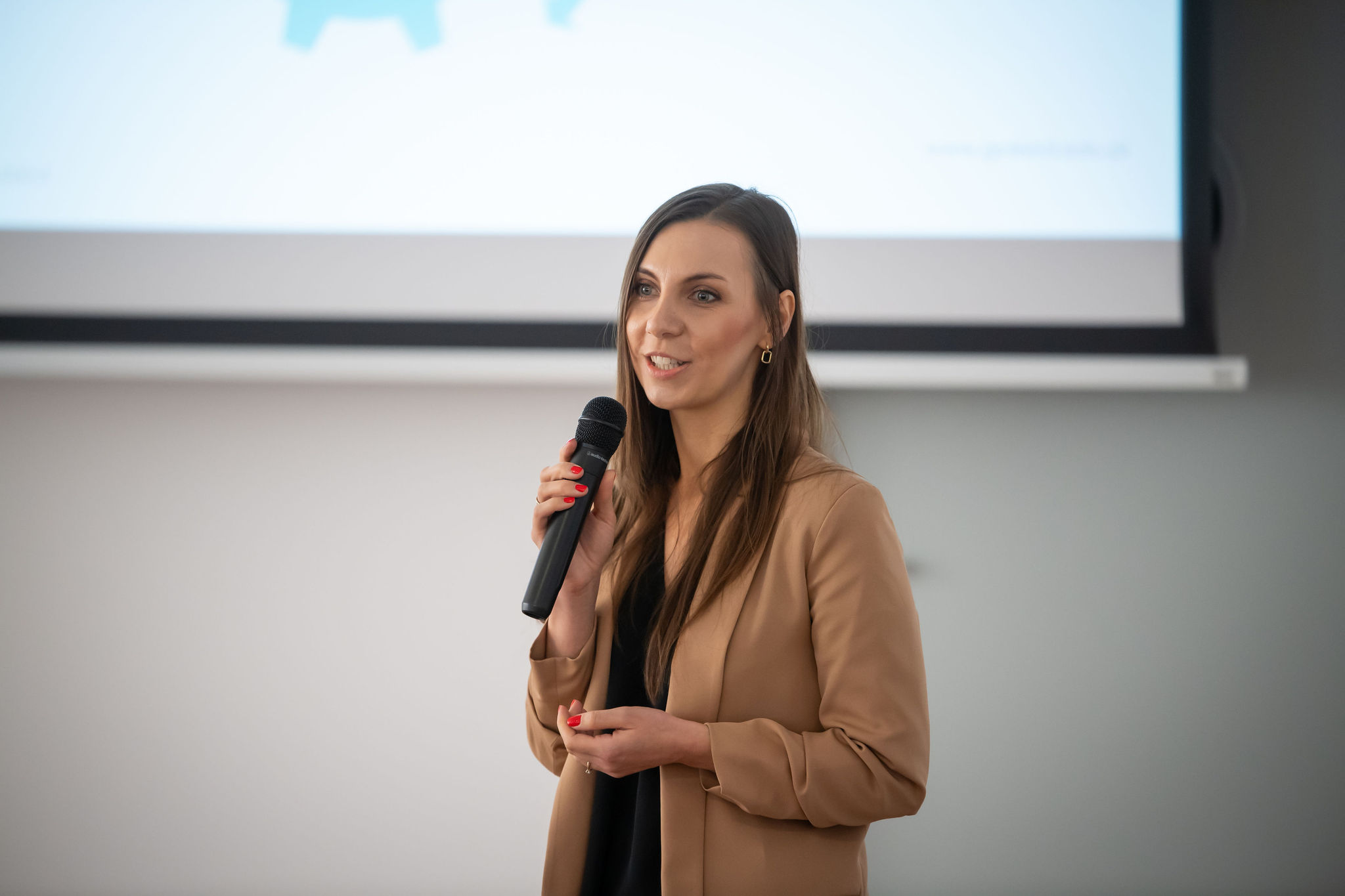
An innovative perspective on the quality of education was presented by Wacław Kulczykowski, Ph.D., from the UG’s Department of Historical Education. He is the creator of two educational video games that have reached a global audience of over two million players. The first game, Excavate! (2015), was developed based on scientific research and supported by off-line tools such as field workshops and direct interaction. The second, Waterworks!, remains available today and serves as compelling evidence that the dissemination of research outcomes through games can be highly effective (over one million users have played it so far). W. Kulczykowski, Ph.D., also briefly discussed how games are being used at the UG in the training of future teachers, educators, science popularisers and game designers, particularly through a newly launched degree programme: Design of Historical Games.
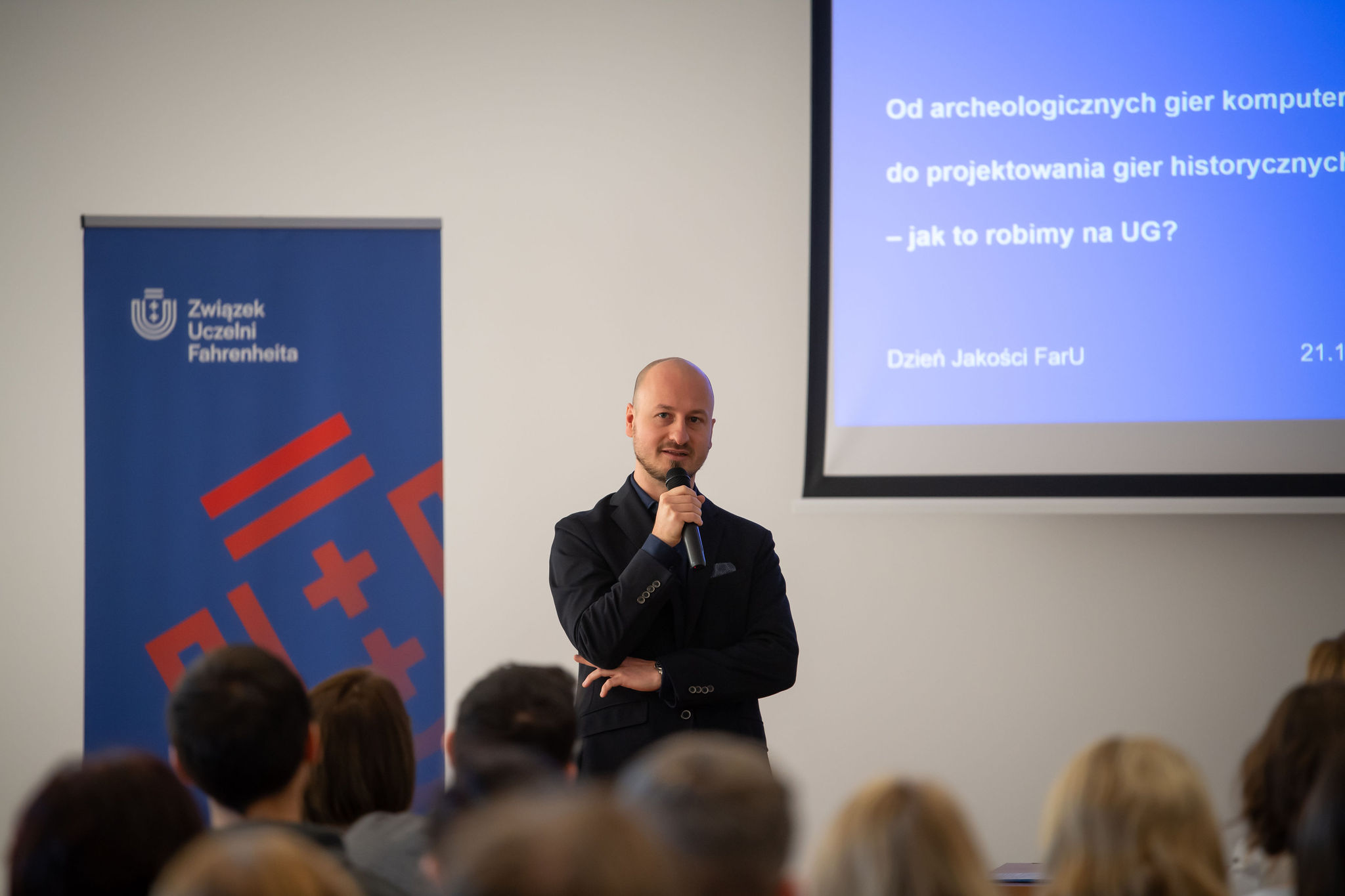
Then Krzysztof Nowicki, Ph.D. Eng., Associate Professor at the GUT (Department of Teleinformatics), presented how the university developed a model for designing and implementing student projects. Initially introduced within a single faculty, the model is now in use across four faculties. He guided the audience through the process of identifying key challenges and crafting a system that supports student projects – not only through academic mentorship but also with the involvement of business practitioners (partner companies actively collaborating with the university and engaging in the project development process).
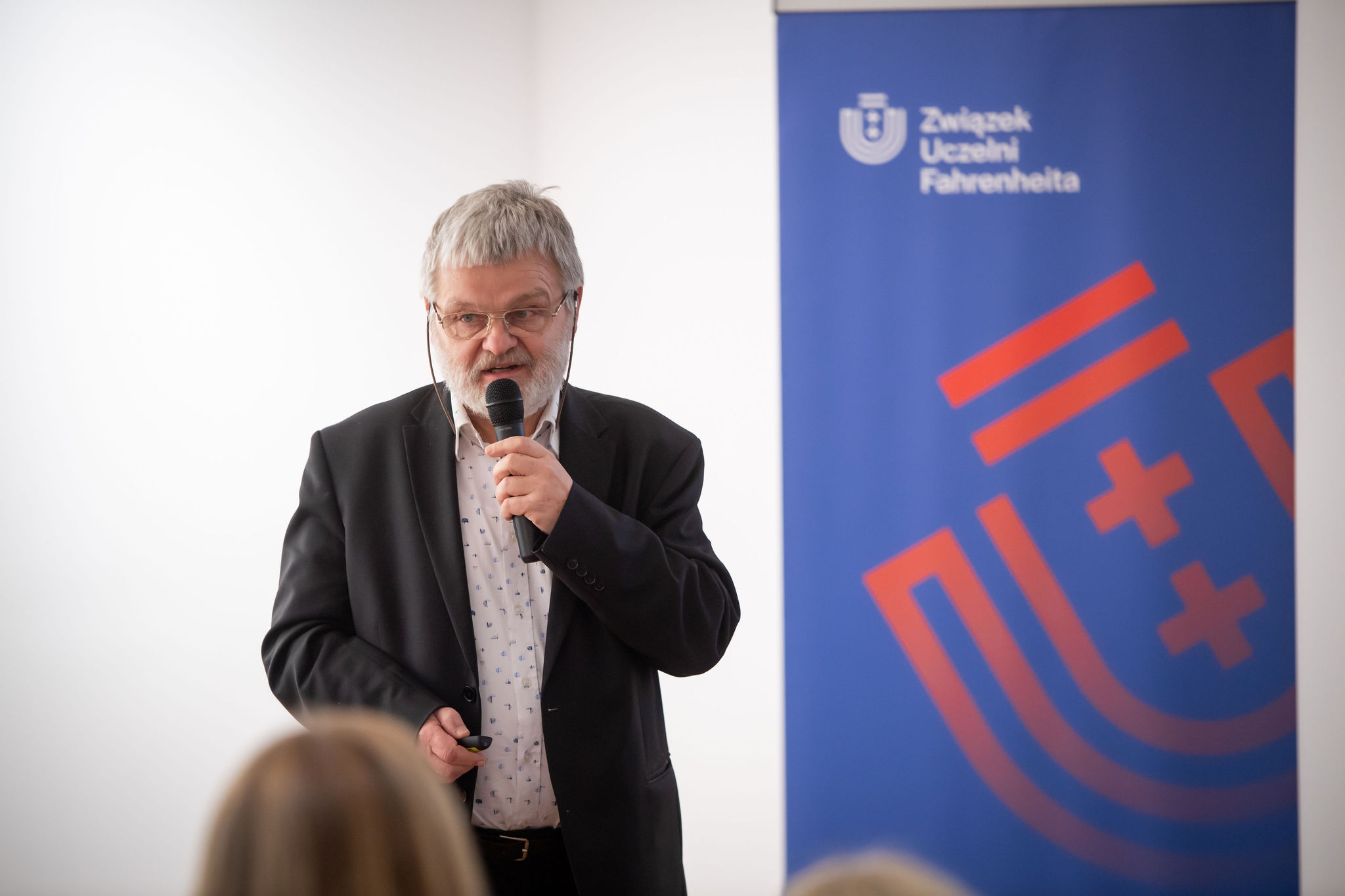
Competencies through the eyes of employers
The final part of the conference focused on the employer's perspective. The first presentation, delivered by Marta Moksa, Managing Director of O4 Coworking, offered valuable insights into navigating professional development in today’s job market, but primarily into importance of identifying one’s personal needs and building self-awareness in the professional sphere. She shared a practical set of tips aimed at helping individuals find their path in the labour market. Many of these suggestions also served as tools for clarifying one’s own expectations, needs, and aptitudes.
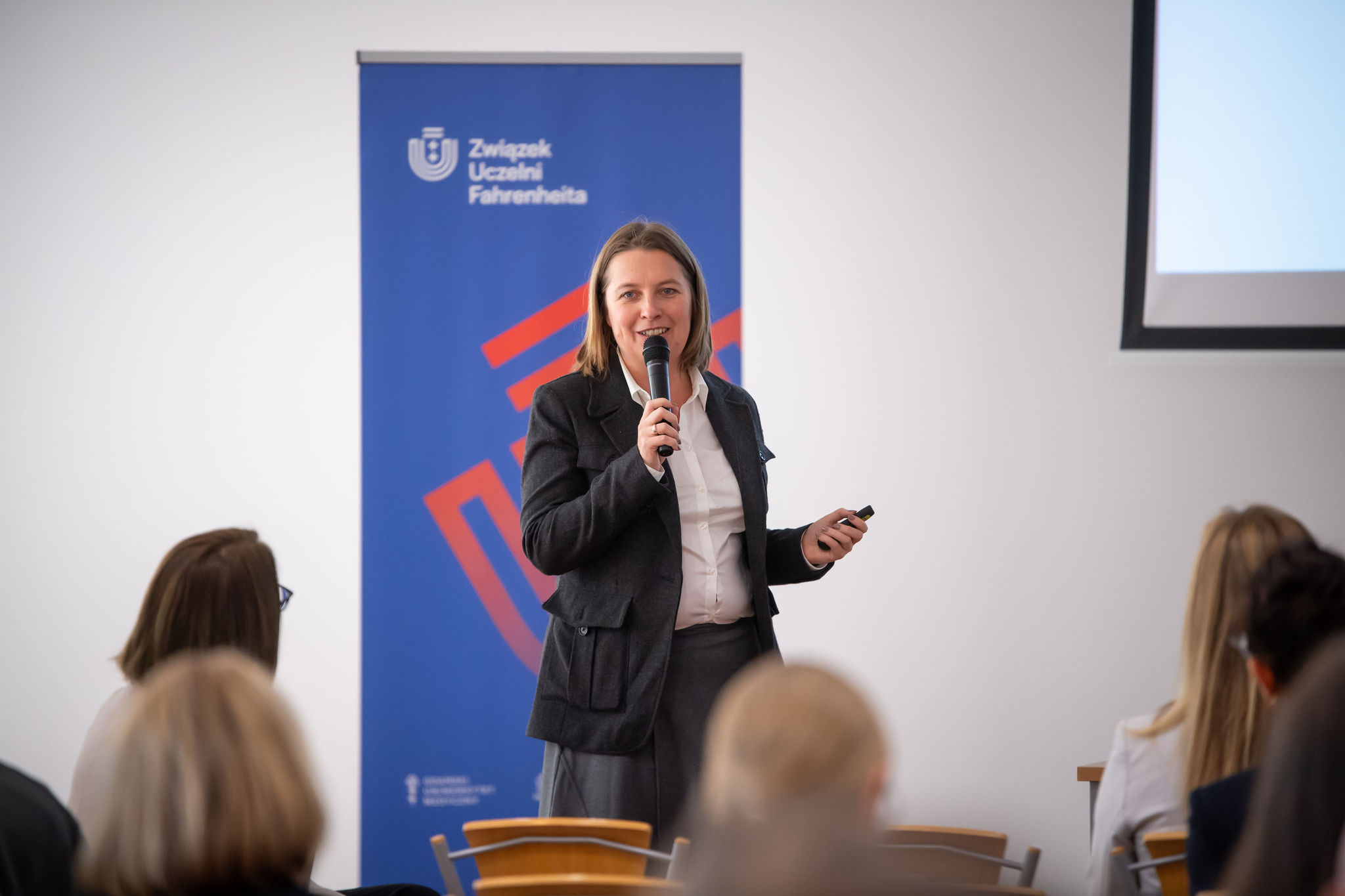
In turn, Prof. Mariusz Siemiński from the Department and Clinic of Emergency Medicine (MUG and the University Clinical Centre) and Piotr Ciborski, Deputy Director for Human Resources at the University Clinical Centre, gave an in-depth presentation on the goals, implementation process, and benefits of introducing the role of the Physician's Assistant. Using case studies and statistical data, they demonstrated why this strategic decision was crucial in easing the burden on medical staff. While regulations around the role are still not in place, surveys and internal analyses clearly show that this solution not only brings tangible benefits but is also being effectively integrated into clinical practice.
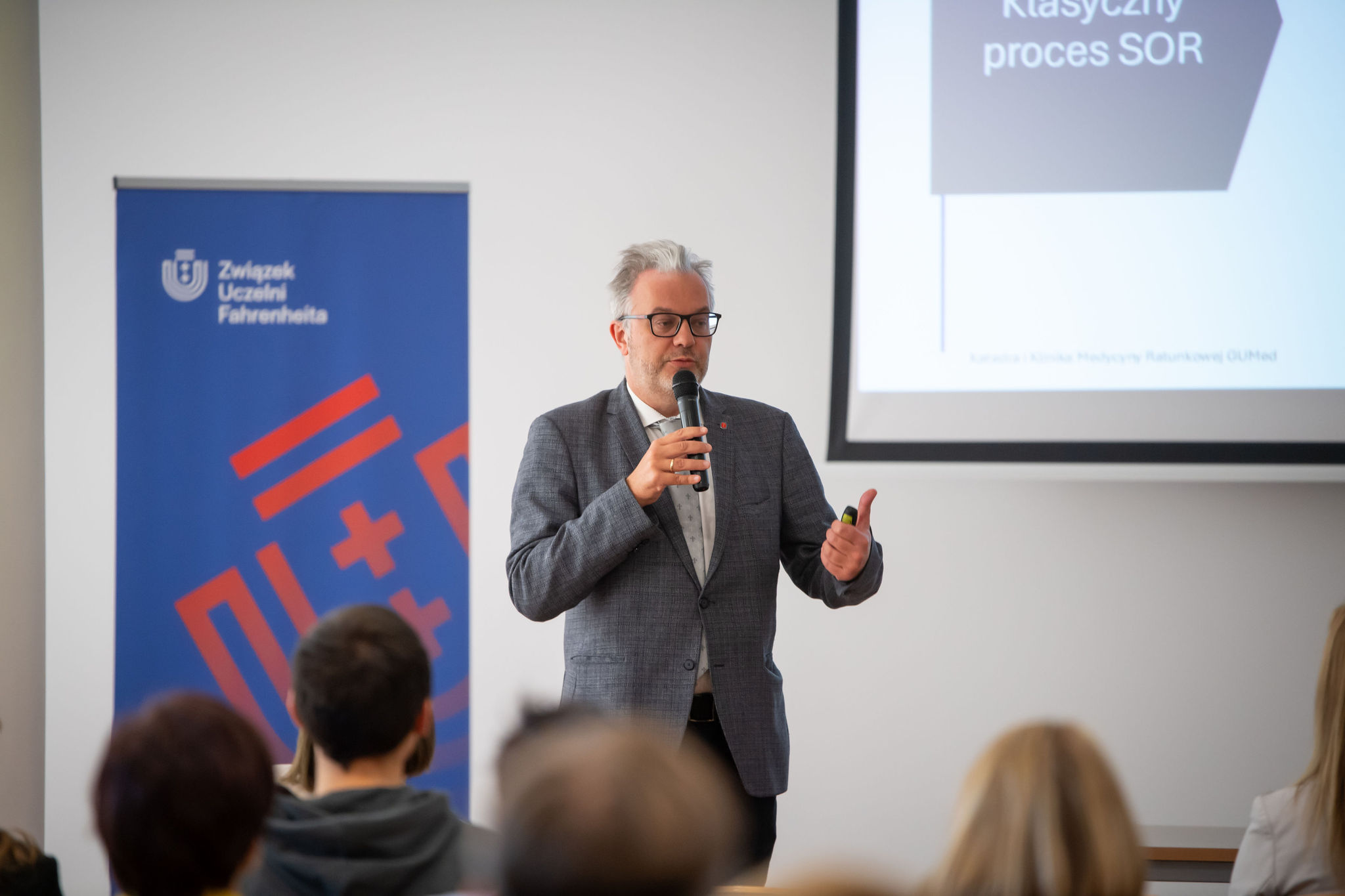
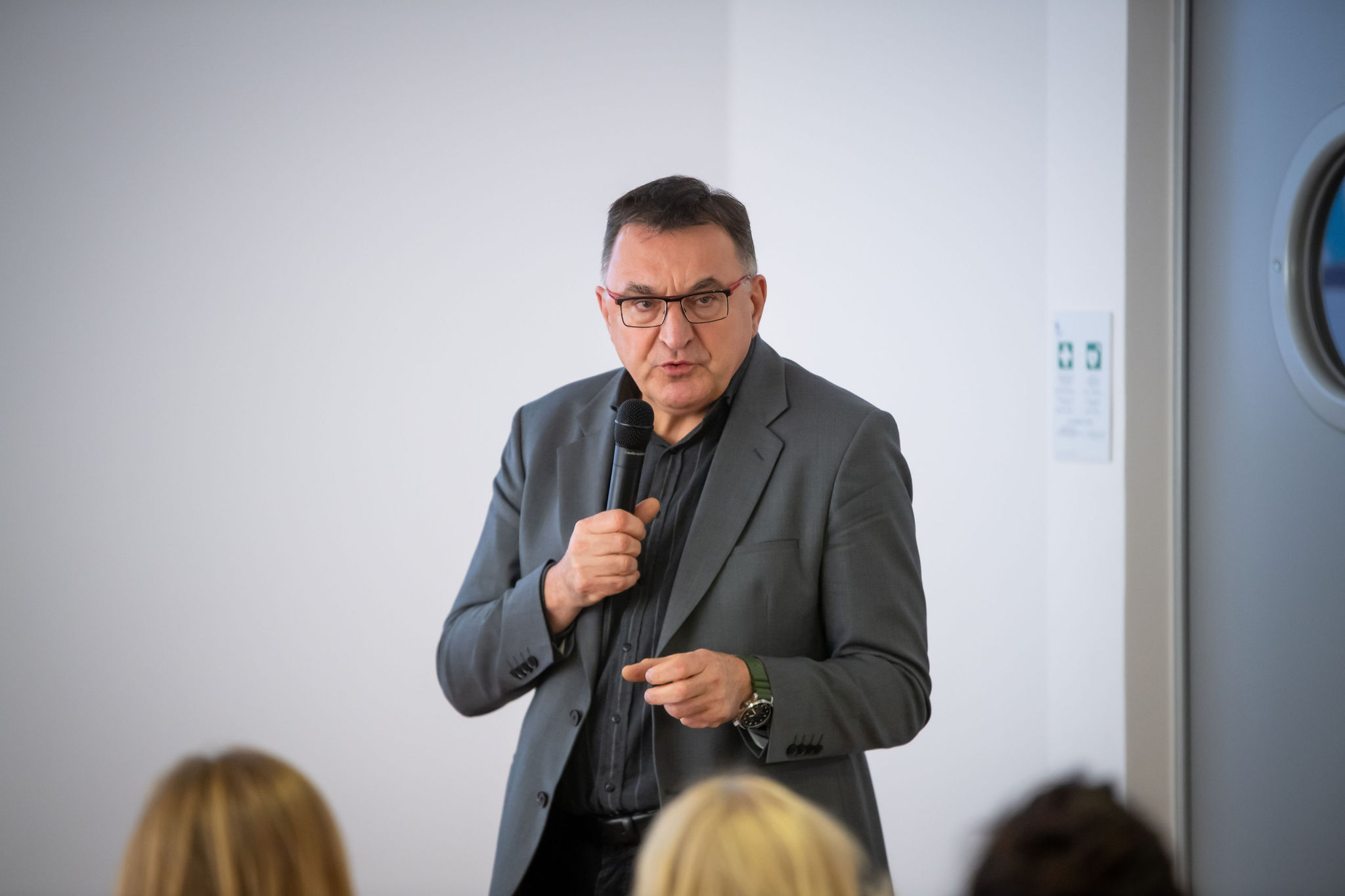
Closing the session, Monika Stokfisz, Talent Attraction Team Manager at Invest in Pomerania, shared her insights on the competencies that most influence professional success. Her presentation aligned closely with the topics and challenges raised by previous speakers, offering a valuable set of suggestions and reflections drawn from the business and economic environment of the Pomeranian region.
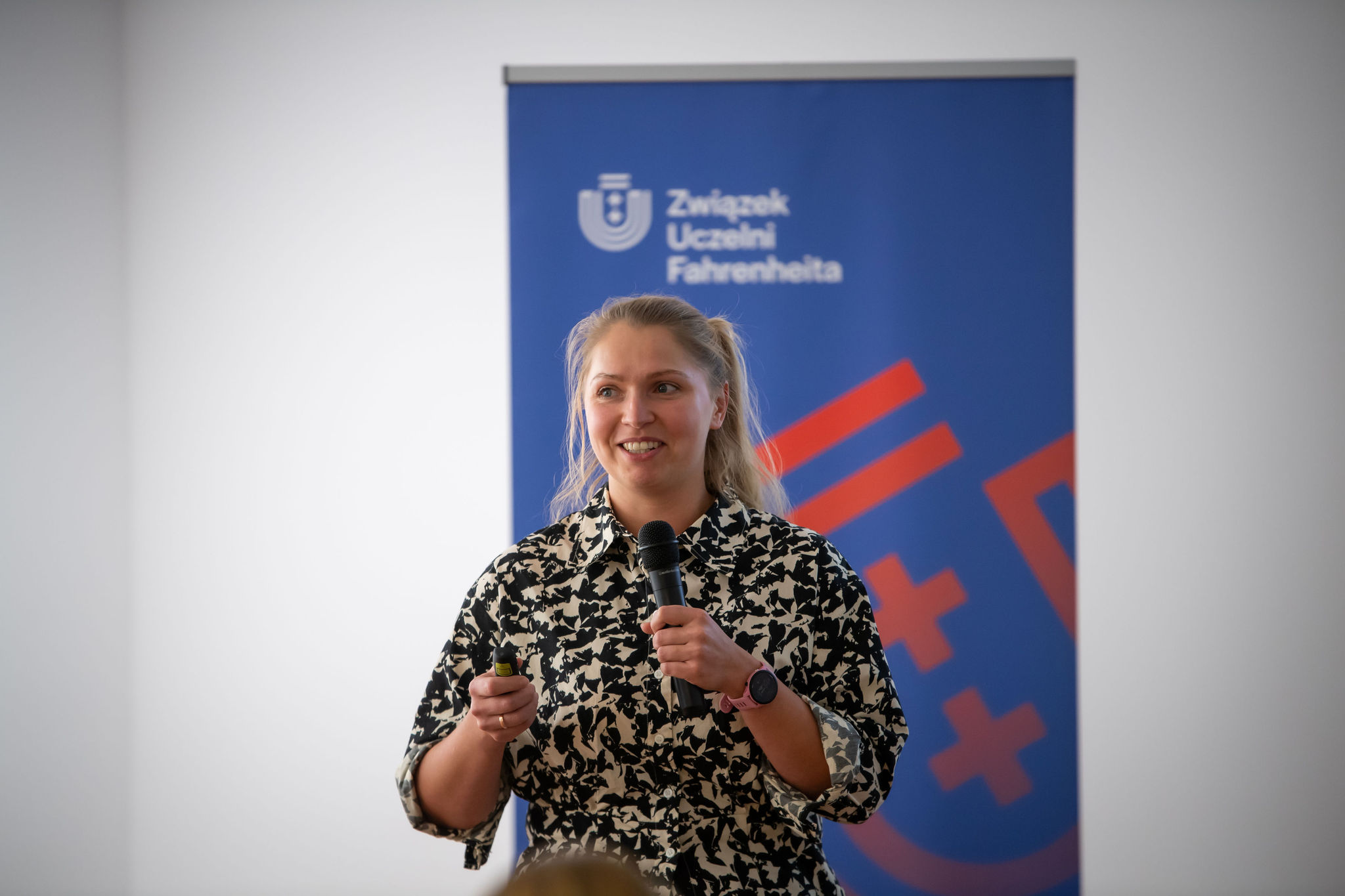
photo: Gregmar









